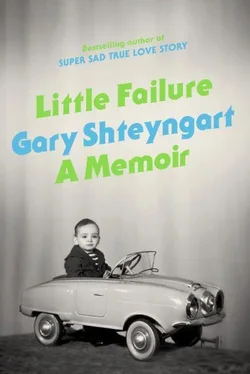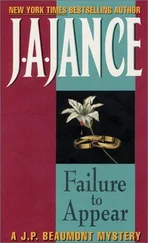
It’s 1999. Three years after my panic attack at the Strand Book Annex. I’ve returned to my Petersburg, née Leningrad, née Petrograd, for the first time in twenty years. I am twenty-seven years old. In about eight months, I will sign a book deal for a novel no longer called The Pyramids of Prague .
But I don’t know that yet. I’m still operating on the theory that I will fail at everything I try. In 1999 I am employed as a grant writer for a Lower East Side charity, and the woman I’m sleeping with has a boyfriend who isn’t sleeping with her. I’ve returned to St. Petersburg to be carried away by a Nabokovian torrent of memory for a country that no longer exists, desperate to find out if the metro still has the comforting smells of rubber, electricity, and unwashed humanity that I remember so well. I return home during the tail end of the Wild East days of the Yeltsin era, when the president’s drinking bouts vie for the front pages with spectacular acts of urban violence. I return to what, in looks and temperament, is now a third-world country in steady free fall, every childhood memory — and there were fates worse, far worse, than a Soviet childhood — soiled by the new realities. The accordion-style bendy bus on the way from the airport has a hole the size of a child between its two halves. I know this because a small child nearly falls out when the bus lurches to a halt. It takes me less than an hour after landing to find a metaphor for my entire visit.
By day four of my return I learn that my exit visa — foreigners in Russia must have a permit both to enter and leave the country — is incomplete without a certain stamp. A good third of my homecoming is spent hunting for this validation. I find myself boxed in by gargantuan Stalin-era buildings in the middle of Moskovskaya Ploshchad, Moscow Square, the exact neighborhood where I lived as a child. I am waiting for a woman from a questionable visa service so that I can bribe a hotel clerk with a thousand rubles (about thirty-five dollars at the time) to have my visa properly authenticated. I am waiting for her in the scruffy lobby of the Hotel Mir, “the worst hotel in the world,” as I will call it in my Travel + Leisure article a few years later. The Hotel Mir, I should add, is exactly down the street from the Chesme Church.
And without warning I can’t breathe.
The world is choking me, the country is choking me, my fur-collared overcoat is pressing down on me with intent to kill. Instead of Tony Soprano’s “ginger ale in my skull” I am subject to an explosion of seltzer and rum across my horizon. On my seltzer-and-rum legs I wobble over to a new McDonald’s on the nearby square still crowned with Lenin’s statue, the square where my father and I used to play hide-and-seek beneath Lenin’s legs. Inside the McDonald’s I try to find refuge in the meaty midwestern familiarity of this place. If I am an American — hence invincible — please let me be invincible now ! Make the panic stop, Ronald McDonald. Return to me my senses . But reality continues to slip away as I put my head down on the cold slab of a fast-food table, weak third-world children all around me dressed in party hats celebrating some turning point in little Sasha’s or Masha’s life.
Writing about the incident in The New Yorker in 2003, I surmised: “My panic [attack] was an off-shoot of my parents’ fear twenty years ago: the fear of being refused permission to emigrate, of becoming what was then called a refusenik (a designation that brought with it a kind of jobless state-sanctioned purgatory). Part of me believed that I would not be allowed to leave Russia. That this— an endless cement square teeming with unhappy, aggressive people in awful leather jackets — would be the rest of my life.”
But now I know that was not the truth. It wasn’t about the visa stamp, the bribe, the refusenik status, any of it.
Because as the world spins around me at the McDonald’s there’s one thing I’m trying not to think about, and it’s the Chesme Church nearby. Its “sugarcoated spires and crenellations.” I’m trying not to be five years old again. But why not? Just look at me and my papa! We’ve launched something between those church spires. Yes, I’m remembering it now. It’s a toy helicopter on a string, buzzing between them. Only now it’s stuck! The helicopter is stuck between the spires, but we are still happy because we are better than this, better than the country around us! This must be the happiest day of my life.
But why am I panicking? Why is the oval of Ativan disappearing beneath my fake white built-in American teeth?
What happened at the Chesme Church twenty-two years ago?
I don’t want to go back there. Oh, no, I do not. Whatever happened, I must not think of it. How I want to be home in New York right now. How I want to sit over my flimsy garage-sale kitchen table, press my American teeth into Mother’s $1.40 Kiev-style chicken cutlet, and feel the disgusting buttery warmth all over my stupid little mouth.
The nesting doll of memory collapses into its component pieces, each leading someplace smaller and smaller, even as I get bigger and bigger.
Father.
Helicopter.
Church.
Mother.
Pyotr Petrovich Roosterovich.
Turks on the beach.
Soviet lies.
Oberlin love.
The Pyramids of Prague .
Chesme.
The book.
I am standing there once again in the Fulton Street Strand, holding St. Petersburg: Architecture of the Tsars , the baroque blue hues of the Smolny Convent Cathedral practically jumping off the cover. I am opening the book, for the first time, to page 90. I am turning to that page. I am turning to that page again. The thick page is turning in my hand.
What happened at the Chesme Church twenty-two years ago?

No. Let us forget about that. Let us leave me in Manhattan, for now, as I turn the page at the Strand, innocent and naïve in my nine-to-five shirt, with my dickish liberal arts ponytail behind me, my novelist dreams in front of me, and my love and anger burning as crimson as ever. As my father wrote in his adventure story:
To be continued — at home.

The author is told that the breadline does not, in fact, deliver.
CERTIFICATE OF BIRTH

IGOR SHTEYNGART
5 July 1972
Dear Parents!
We cordially congratulate you and share your joy at the birth of a new human being — a citizen of the Union of Soviet Socialist Republics and a member of the future Communist Society .
We wish your family health, much love, friendship, and harmony .
We are certain that you will raise your son to be a conscientious toiler and a loyal patriot of our great motherland!
Signed ,
Executive Committee of the
Leningrad City Council of Workers’ Deputies

I AM BORN.
My pregnant mother crosses a Leningrad street and a truck driver honks at her, because scaring pregnant women is the thing to do. She grabs her stomach. The water breaks. She rushes to the Otto Birthing House on Vasilyevsky Island, an important floating appendage to the map of Leningrad, the same birthing house where she and her two sisters have come into the world. (Russian children are not born in full-fledged hospitals as in the West.) Several weeks premature, I drop out of my mother, legs and ass first. I am long and skinny and look a bit like a dachshund in human form, except that I have a fantastically large head. “Well done!” the orderlies tell my mother. “You’ve given birth to a good muzhik .” The muzhik , the sturdy, brawny Russian man, is the last thing I will ever become, but what rankles my mother is that the orderlies are using the informal form of address with her ( ty versus vy ). My mother is sensitive to these distinctions. She is from a good family and not merely another Jewess ( yevreika ) you can informally insult.
Читать дальше















